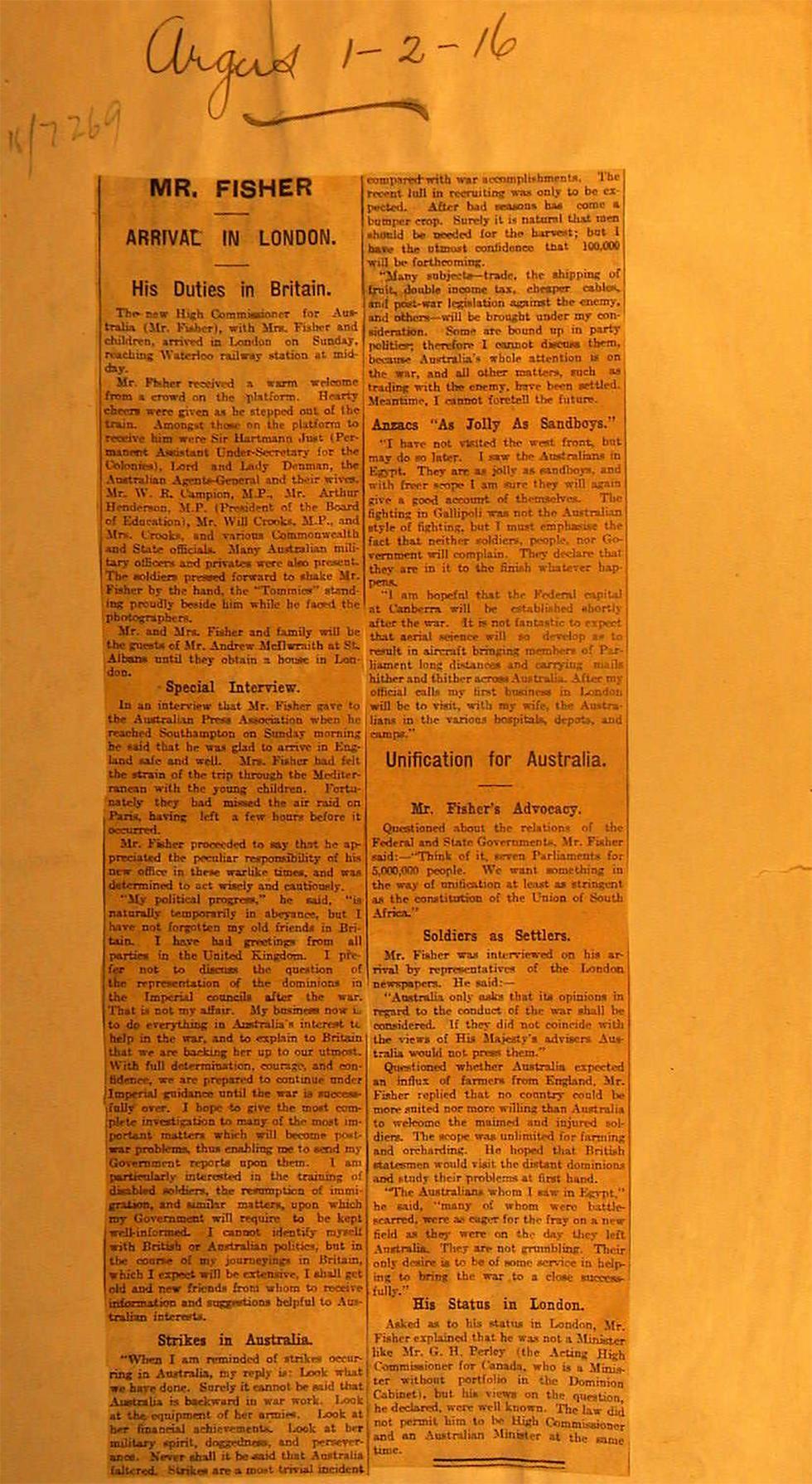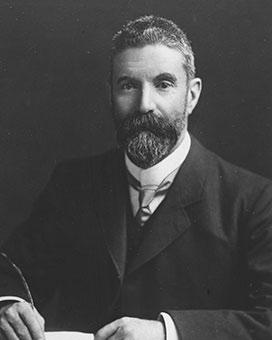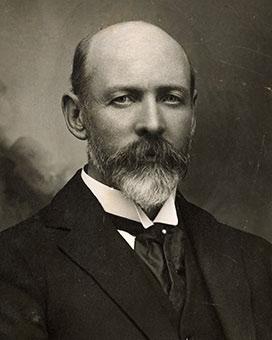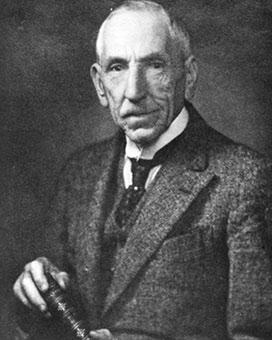Andrew Fisher was Australia's High Commissioner in London for 5 years, including the last 2 years of the 1914-18 war. The last 7 years of his life were spent in retirement in London, where he died in 1928.
Fisher served as Australia's second High Commissioner in London from 1 January 1916 to 1 January 1921. He played a role in wartime liaison, though he was in the difficult position of opposing his Prime Minister on the issue of conscription.

Andrew Fisher was Australia's second High Commissioner. He arrived with his family in London at the end of January 1916 after a tense sea voyage through the Mediterranean war zone. NAA: A2, 1916/159, p.5
Being against conscription was seen by many in Australia, and many more in England, as unpatriotic and disloyal to Britain. When William Hughes cabled Fisher three weeks before the first conscription referendum in October 1916, asking him to join with prominent Australians in an appeal for public support for conscription, Fisher cabled back ‘Am unable to sign appeal. Position forbids’. From then he managed by never commenting publicly on the issue.
In any case, Hughes became a presence in London, and spoke directly for his government on his lengthy visits there. Hughes also made Australian journalist, Keith Murdoch (a former friend of Fisher), his key London contact, rather than the High Commissioner.
Fisher continued to have regular contact with Australian colleagues, including George Pearce (still Minister for Defence) and Albert Gardiner, who sent assessments of the strength of anti-conscription feeling. After Fisher visited Australian troops in France and Belgium in October 1919, he presented Pearce with an album of photographs taken on the battlefields during the previous 2 years. The stark images and detailed captions conveyed the horror the men had experienced.
As High Commissioner, Fisher served as a member of the Dardanelles Commission (1916-17) which investigated the Gallipoli disaster. The report of the Commission and information gathered by the inquiry remain a key source of documents on the campaign.
Hughes did not comply with Fisher’s request to extend his term as High Commissioner. Fisher sought a post in Australia, but remained in London. He had, like Alfred Deakin, developed dementia and became increasingly ill.
Andrew Fisher died at his home in South Hill Park, London on 22 October 1928, aged 66. On 7 February 1930, Britain’s first Labour Prime Minister Ramsay Macdonald unveiled a memorial to Fisher in Hampstead Cemetery. 50 years after his death, a memorial garden was dedicated at Crosshouse, Fisher’s Ayrshire birthplace.
The Fishers’ Melbourne home, Oakleigh Hall, continued to perform a public function after the family moved to London in 1916, the Fishers made the house available as a convalescent home for returned servicemen. The house no longer exists, but it had other notable functions before its demolition. The Oxford Club had its premises in Oakleigh Hall and, in the 1950s, it was the location for the film On the Beach.
Sources
- Lloyd, Clem, ‘Andrew Fisher’ in Michelle Grattan (ed.), Australian Prime Ministers, New Holland, Melbourne, 2000, pp. 72–86.
- McMullin, Ross, The Light on the Hill: The Australian Labor Party 1891–1991, Oxford University Press, Melbourne, 1991.
- Malkin, John, Andrew Fisher 1862–1928, Walker & Connell, Strathclyde, c1979.
- Thomson, John, The Australian High Commission in London, Its Origins and Early History, PhD thesis, Australian National University, 1980.
- Gardiner to Fisher, 14 February 1916, Fisher papers, National Library of Australia (NLA): MS 2919/1/195
- Pearce to Fisher, 15 April 1916, Fisher papers, NLA: MS 2919/1/200
- Hughes to Fisher, 4 October 1916, Fisher papers, NLA: MS 2919/1/238
- Fisher to Hughes, 4 October 1916, Hughes papers, NLA: MS 1538/20/260





